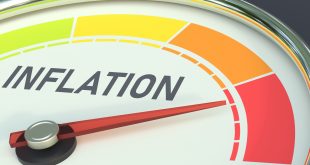The Euro (EUR) has edged higher against the US Dollar (USD) in subdued trading conditions due to the Good Friday holiday, currently trading around 1.139, a 0.28% increase. While the pair has yet to decisively breach the 1.14 threshold, the prevailing market sentiment continues to exert pressure on the US dollar.
A key factor influencing the currency markets is the United States’ contentious trade policies. The latest development involves the White House’s intention to impose tariffs on Chinese ships docking at US ports. This move has the potential to disrupt global shipping routes and escalate the ongoing trade dispute between the US and China, prompting investors to favor other major currencies, including the Euro.
Adding to the Dollar’s woes are renewed concerns surrounding the independence of the Federal Reserve. Reports surfaced on Thursday indicating President Trump’s displeasure with Fed Chair Jerome Powell, with a White House advisor later suggesting that the President is exploring the legality of dismissing him.
Although market reaction to this news has been muted thus far, the uncertainty surrounding the Fed’s leadership contributes to the overall pressure on the US Dollar, as reflected in the US Dollar Index (DXY), which has fallen by 0.09% to 99.31.
Meanwhile, on the Eurozone front, European Central Bank (ECB) Governing Council member Madis Müller offered insights into the recent rate cut. He stated that the decline in energy prices and the implementation of tariffs provided justification for the monetary easing. While acknowledging that policy constraints appear to be easing and key economic indicators are moving favorably, Müller also cautioned that increasing economic fragmentation could potentially lead to inflationary pressures.
From a technical perspective, the EUR/USD pair is currently trading near its weekly high around the 1.1400 mark. The recent price action suggests that the Euro has the potential to extend its gains beyond this level, potentially opening the door for further upside. Key resistance levels to watch include the April 11 high at 1.1473, followed by the February 2022 peak at 1.1498, and ultimately the significant 1.1500 figure.

 Noor Trends News, Technical Analysis, Educational Tools and Recommendations
Noor Trends News, Technical Analysis, Educational Tools and Recommendations




